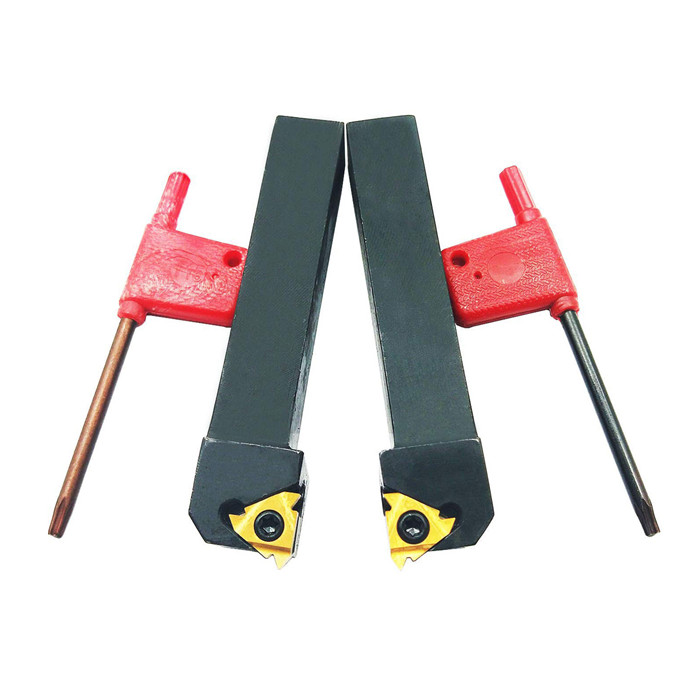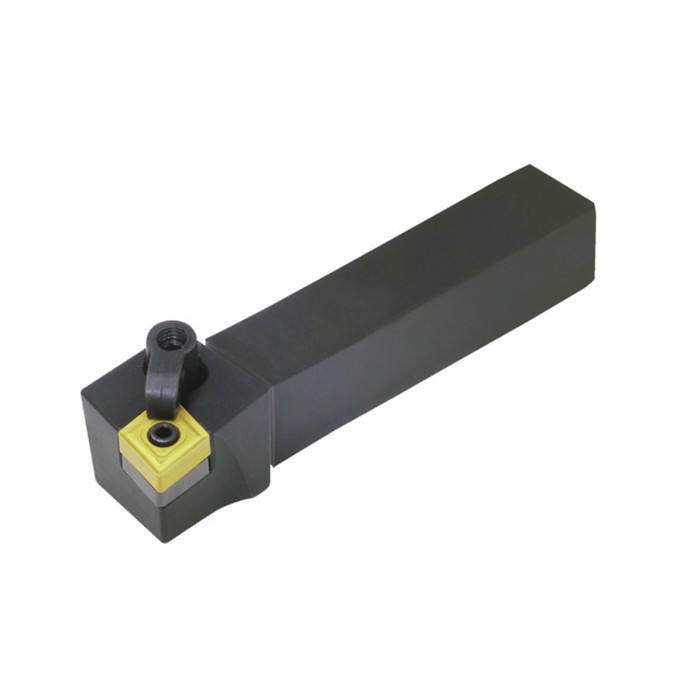Turning Inserts Supplier
Finding a reliable turning inserts supplier is crucial for optimizing your machining operations and achieving high-quality results. This guide provides a comprehensive overview of factors to consider when selecting a supplier, different types of turning inserts, key features to look for, and essential tips to ensure you get the best value and performance. It also helps you understand why partnering with a trusted turning inserts supplier like Wayleading Tools can significantly benefit your business.
Understanding Turning Inserts: A Foundation for Success
What are Turning Inserts?
Turning inserts are small, replaceable cutting tools used in turning operations on lathes. They are typically made from hard materials like carbide, ceramic, cermet, cubic boron nitride (CBN), or diamond. The choice of material depends on the workpiece material, cutting speed, and desired surface finish. The quality of these inserts directly impacts the efficiency and precision of your machining processes.
Why are High-Quality Turning Inserts Important?
Using high-quality turning inserts offers several benefits:
- Improved Surface Finish: Achieve smoother and more precise cuts.
- Increased Cutting Speed: Reduce cycle times and increase productivity.
- Extended Tool Life: Minimize downtime and replacement costs.
- Enhanced Material Removal Rate: Efficiently remove material and reduce machining time.
- Reduced Vibration: Maintain stability during cutting for improved accuracy.
Key Factors to Consider When Choosing a Turning Inserts Supplier
Experience and Reputation
Look for a supplier with a proven track record and a strong reputation in the industry. Companies like Wayleading Tools, with years of experience, demonstrate expertise and commitment to quality.
Product Range and Availability
A reliable turning inserts supplier should offer a wide range of insert types, grades, and geometries to suit various applications. This ensures you can find the perfect insert for your specific needs. Consider suppliers that maintain a substantial inventory for quick delivery and minimize downtime.
Quality and Performance
The quality of turning inserts is paramount. Inquire about the materials used, manufacturing processes, and quality control measures employed by the supplier. Reputable suppliers often provide performance data and technical specifications to support their claims. Request samples to test the inserts in your own machining operations before committing to a large order.
Pricing and Value
While price is a consideration, it shouldn't be the sole deciding factor. Focus on the overall value, which includes the insert's performance, lifespan, and the supplier's customer support. A slightly more expensive insert that lasts longer and performs better can ultimately be more cost-effective.
Technical Support and Customer Service
Choose a supplier that provides excellent technical support and customer service. They should be able to answer your questions, offer guidance on selecting the right inserts, and provide assistance with troubleshooting any issues that may arise. A dedicated customer support team demonstrates the supplier's commitment to your success.
Types of Turning Inserts
Carbide Turning Inserts
Carbide turning inserts are the most common type due to their versatility and cost-effectiveness. They are suitable for machining a wide range of materials, including steel, cast iron, and non-ferrous metals.
Features: High hardness, good wear resistance, and ability to withstand high cutting speeds.
Ceramic Turning Inserts
Ceramic turning inserts offer excellent wear resistance and can be used at higher cutting speeds than carbide inserts. They are ideal for machining hardened steels and cast iron.
Features: High hot hardness, chemical inertness, and resistance to thermal shock.
Cermet Turning Inserts
Cermet turning inserts combine the properties of ceramics and metals. They offer a good balance of wear resistance and toughness, making them suitable for finishing operations on steel and stainless steel.
Features: High wear resistance, low cutting forces, and excellent surface finish.
CBN Turning Inserts
Cubic Boron Nitride (CBN) turning inserts are extremely hard and are used for machining hardened steels, superalloys, and cast iron.
Features: Exceptional hardness, high thermal conductivity, and resistance to abrasion.
Diamond Turning Inserts
Diamond turning inserts are the hardest cutting tool material and are used for machining non-ferrous metals, composites, and abrasive materials.
Features: Extremely high hardness, excellent wear resistance, and ability to produce very fine surface finishes.
Shapes and Geometries
Square Inserts
Durable and versatile, suitable for roughing operations.
Triangle Inserts
Offer three cutting edges, providing good economy.
Diamond Inserts
Ideal for finishing operations requiring high precision.
Round Inserts
Excellent for profiling and contouring.
Coatings
Coatings enhance the performance of turning inserts by increasing wear resistance, reducing friction, and improving heat dissipation. Common coatings include:
- Titanium Nitride (TiN)
- Titanium Carbide (TiC)
- Aluminum Oxide (Al2O3)
- Titanium Aluminum Nitride (TiAlN)
Tips for Selecting the Right Turning Inserts
Consider the Workpiece Material
The material you're machining will significantly influence the type of insert you need. Harder materials require more wear-resistant inserts like CBN or diamond.
Determine the Cutting Conditions
Cutting speed, feed rate, and depth of cut will also affect the choice of insert. Higher cutting speeds require inserts with better heat resistance.
Choose the Appropriate Geometry
Select an insert geometry that is suitable for the type of operation you're performing. Roughing operations require stronger inserts with larger cutting edges, while finishing operations require inserts with sharper cutting edges.
Evaluate the Coating
Choose a coating that is compatible with the workpiece material and cutting conditions. TiN coatings are suitable for general-purpose applications, while TiAlN coatings are better for high-speed machining.
The Importance of a Reliable Turning Inserts Supplier
Partnering with a reliable turning inserts supplier like Wayleading Tools can significantly benefit your business by providing:
- Consistent product quality
- Competitive pricing
- On-time delivery
- Technical expertise and support
- A wide range of products to meet your needs
Why Choose Wayleading Tools as Your Turning Inserts Supplier?
Wayleading Tools is a leading turning inserts supplier dedicated to providing high-quality products and exceptional customer service. We offer a comprehensive range of turning inserts to meet the diverse needs of our customers.
Our Advantages
- Extensive Product Range: Wayleading Tools offers a diverse selection of turning inserts, including carbide, ceramic, cermet, CBN, and diamond inserts, ensuring you find the perfect match for your specific applications.
- Quality Assurance: We adhere to strict quality control standards to ensure that our turning inserts meet the highest performance and durability standards.
- Technical Expertise: Our team of experienced engineers and technicians is available to provide expert guidance and support, helping you select the right turning inserts and optimize your machining processes.
- Competitive Pricing: We offer competitive pricing on all our turning inserts, providing excellent value for your investment.
- Timely Delivery: With a robust supply chain and efficient logistics, Wayleading Tools ensures prompt and reliable delivery of your orders.
Choosing the right turning inserts supplier is critical for the success of your machining operations. By considering the factors outlined in this guide and partnering with a reputable supplier like Wayleading Tools, you can optimize your cutting processes, improve product quality, and increase your overall efficiency. Contact us today to learn more about our turning inserts and how we can help you achieve your machining goals.
Related products
Related products
Best selling products
Best selling products-
 HSS Metric Plain Metal Slitting Saws For Industrial
HSS Metric Plain Metal Slitting Saws For Industrial -
 MT/R8 Shank Quick Change Tapping Chuck With MT & R8 Shank
MT/R8 Shank Quick Change Tapping Chuck With MT & R8 Shank -
 Precision 10pcs & 12pcs Angle Blocks Set With High Quality Type
Precision 10pcs & 12pcs Angle Blocks Set With High Quality Type -
 5C Hex Collet With Inch and Metric Size
5C Hex Collet With Inch and Metric Size -
 Indexable SER & SEL Threading Tool Holder With Metric & Inch Size
Indexable SER & SEL Threading Tool Holder With Metric & Inch Size -
 Dial Bore Guage From 6-450mm Range
Dial Bore Guage From 6-450mm Range -
 R8 Hex Collet With Inch and Metric Size
R8 Hex Collet With Inch and Metric Size -
 Metric HSS Step Drills With Straight Flute
Metric HSS Step Drills With Straight Flute -
 Inch Solid Carbide Twist Drill With Internal Coolant & External Coolant
Inch Solid Carbide Twist Drill With Internal Coolant & External Coolant -
 Precision Monoblock Vernier Caliper With Nib Style Jaws Of Metric & Imperial For Industrial
Precision Monoblock Vernier Caliper With Nib Style Jaws Of Metric & Imperial For Industrial -
 HSS Metric Square Tool Bit With Industrial Type
HSS Metric Square Tool Bit With Industrial Type -
 HSS Shell End Mill Cutter With Bright & TiN Or TiAlN Coated
HSS Shell End Mill Cutter With Bright & TiN Or TiAlN Coated











